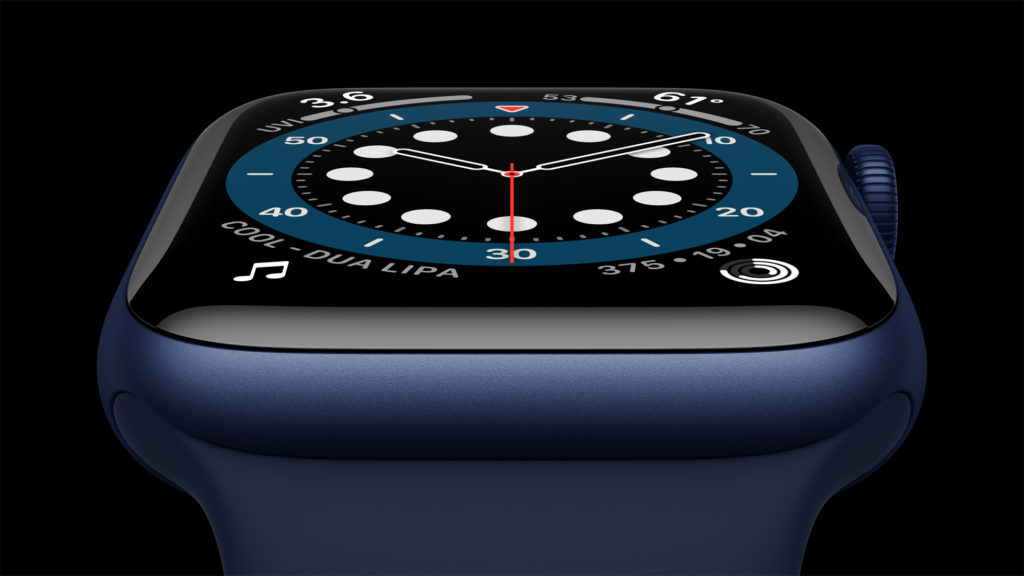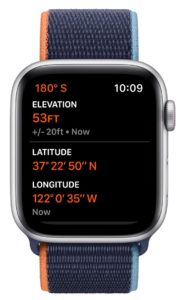Check it out! New Apple Watches.
In its “Time Flies” special event on September 15th, Apple cleared the decks of some secondary releases to make room for the anticipated unveiling of the iPhone 12 in a few weeks. Secondary though these products may be compared to the iPhone, the new Apple Watch Series 6, Apple Watch SE, fourth-generation iPad Air, and eighth-generation iPad are nothing to sneeze at.
Apple also announced a new subscription service, Apple Fitness+, and three discounted Apple One bundles of its subscription services.
Check out our stories on the New iPads here, and the Fitness+ and Apple One services here.
Lastly, Apple said that iOS 14, iPadOS 14, watchOS 7, and tvOS 14 would ship on September 16th, and they did indeed. We’ll have more about those releases soon, but we recommend that you wait at least a few weeks before updating the devices you rely on. Although the betas have been pretty stable, nasty bugs may surface as millions of users start using the new operating systems.
Apple Watch Series 6
With the Apple Watch, Apple usually makes incremental enhancements that improve each successive generation, and the Apple Watch Series 6 is no exception. Most notably, it includes a Blood Oxygen sensor and app that report on the oxygen saturation of the wearer’s blood. Low readings can indicate problems with health and fitness, and research suggests that blood oxygen numbers may help identify COVID-19 or flu infections. Low blood oxygen levels could also encourage those who are infected to seek additional medical attention.

The Apple Watch Series 6 also features a new S6 chip, a next-generation always-on altimeter, and an enhanced Always-On Retina display that is up to 2.5 times brighter than the Series 5 display outdoors when the user’s wrist is down, so it’s easier to view in bright sunlight.
Prices for the Apple Watch Series 6 start at $399 for a 40mm GPS-only aluminum model, with cellular capabilities adding $100. The larger 44mm model costs $30 more, and you can spend more on stainless steel (+$300) and titanium (+$400) cases and various watch bands. The aluminum model comes in silver, space gray, and gold, plus (PRODUCT)RED and a new blue color. The stainless steel model comes in graphite or gold, and the titanium case in natural and space black.
Note: If your business has a Custom Apple Store, you can get a slight discount on these devices, and don’t forget you can allow your employees to purchase from the store with that discount as well. It’s a nice perk. If you don’t have a custom store, reach out and we’ll get you set up.
Apple Watch SE

If $399 is too high of a starting point for you, consider Apple’s other new model, the Apple Watch SE. Based on the S5 chip used in last year’s Apple Watch Series 5, the Apple Watch SE includes some of the sensors in the Series 6, such as the always-on altimeter, and it supports fall detection, but it lacks the Series 6’s ECG and Blood Oxygen capabilities. Nor does it have the Always-On Retina display—its display goes black when the user’s wrist is down.
Those tradeoffs drop the Apple Watch SE’s starting price to $279 for a 40mm GPS-only model. A larger 44mm watch bumps the price up by $30, and cellular capabilities add another $100. You’re limited to aluminum cases in silver, gold, and space gray, but any of the Apple Watch bands will work with it. Is $279 still too expensive? The Apple Watch Series 3 remains available in a GPS-only model starting at $199.
The Apple Watch SE might be particularly attractive to families or those caring for seniors, thanks to Apple’s new Family Setup, which lets you manage cellular Apple Watches (Series 4 and later) for others from your iPhone instead of each person having to manage their Apple Watch from their own iPhone.
New Watch Bands
Apple also introduced two new bands: the Solo Loop and the Braided Solo Loop. Both have no buckles or clasps and come in nine available lengths—they expand to fit over your hand and contract to fit snugly on your wrist. The Solo Loop is made of soft silicone, and the Braided Solo Loop combines 16,000 polyester yarn filaments with ultrathin silicone threads—it costs an extra $50.
(Images by Apple.)


